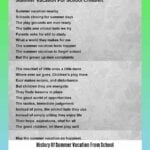Opal’s Unique Perspective: A Child’s Eye View
Ten-year-old India Opal Buloni narrates Because of Winn-Dixie through a poignant first-person lens, revealing her own journey of self-discovery alongside her dog’s impact on their community. It’s as if we’re sitting with her, sharing a glass of sweet tea, while she recounts the transformative summer she met Winn-Dixie. Because she’s looking back a year later, the story gains a layer of reflection, suggesting a wisdom beyond her years. This retrospective narration allows for a deeper exploration of themes like growing up, loss, and the power of community.
Opal’s honesty and simple language are central to the book’s emotional power. She doesn’t shy away from her feelings, making her instantly relatable. This genuine voice likely resonates with readers because it captures the authentic way a child thinks and speaks. She describes Winn-Dixie, not just as a scruffy stray, but as her confidant, the furry glue that holds her summer together. This focus on feelings, rather than just physical descriptions, strengthens the bond between Opal and the reader.
The Power of Winn-Dixie: A Catalyst for Connection
Opal’s story is more than just a girl and her dog; it’s about finding your place when you feel lost. Winn-Dixie acts as a catalyst, not only for Opal’s personal growth but also for the transformation of the entire community. He’s the reason Opal connects with Miss Franny Block, the librarian who shares captivating stories about her past, and Gloria Dump, the misunderstood woman who welcomes them into her whimsical garden. He even helps Opal connect with Otis, the ex-convict who finds solace in music. These relationships, sparked by a stray dog, highlight the power of even the smallest act of kindness to create a sense of belonging.
| Character | Impact on Opal | Connection to Winn-Dixie |
|---|---|---|
| Miss Franny Block | Shares stories and wisdom, helping Opal cope with her mother’s absence. | Winn-Dixie’s calming presence enables Opal to connect with Miss Franny and listen to her stories. |
| Gloria Dump | Offers friendship, acceptance, and a safe space for Opal to express herself. | Winn-Dixie is drawn to Gloria’s kindness, leading Opal to a valuable friendship. |
| The Preacher (Opal’s Father) | Begins to communicate and connect with Opal, sharing his grief and vulnerabilities. | Winn-Dixie provides a shared point of affection and opens a pathway for deeper conversations. |
| Otis | Finds a friend in both Opal and Winn-Dixie, demonstrating the power of acceptance and second chances. | Winn-Dixie’s presence in the pet store breaks down barriers and fosters a connection between Opal and Otis. |
It’s worth considering how the story might differ if told from another perspective. Would we feel the same connection to the characters and the town of Naomi? Probably not. Opal’s youthful, hopeful voice, combined with her honest narration, creates a powerful and intimate reading experience. This unique voice may be the key to the book’s enduring appeal, reminding us that joy, friendship, and even a little bit of magic can exist even amidst sadness and loss. The open ending suggests a continuing journey of healing and growth, leaving the reader with lingering warmth and optimism. For more insights into stories about growth and connection, check out our page on Because of Mr. Terupt. And for a touch of sensory detail reminiscent of Gloria Dump’s garden, you might enjoy our page on Branch and Vine Air Freshener.
Who is the Narrator in Because of Winn-Dixie?
Opal’s first-person narration immerses the reader in her emotional journey, allowing us to experience the world through her ten-year-old eyes. More than just a storyteller, Opal is the emotional core of Because of Winn-Dixie, her yearning for connection driving the narrative and shaping the novel’s powerful themes of friendship, family, and forgiveness. We experience Naomi, Florida, not as an objective observer, but through Opal’s unique perspective, full of childlike wonder and a touch of melancholy due to her mother’s absence.
Opal’s authentic voice, full of innocent curiosity and a healthy dose of loneliness, pulls us into her world. The narrative feels remarkably real, possibly because DiCamillo masterfully captures the way a child thinks and speaks. We feel Opal’s loneliness keenly, understanding her deep desire for connection.
Imagine wandering into a Winn-Dixie supermarket and encountering a scruffy, grinning dog creating chaos. This pivotal moment, narrated through Opal’s eyes, is how we meet Winn-Dixie, the stray dog who transforms her life. Through her narration, we see how Winn-Dixie brings Opal out of her shell and helps her connect with the quirky residents of Naomi – Miss Franny Block, Otis, and Gloria Dump. Opal’s straightforward storytelling, while simple, resonates deeply, tapping into universal feelings of childhood.
The way Opal narrates her experiences makes it clear how much Winn-Dixie changes everything. He’s not just a pet; he’s a catalyst, helping her make friends, connect with her father, the preacher, and begin to heal from her mother’s absence. Through Opal’s simple and honest narration, Because of Winn-Dixie suggests that friendship, kindness, and hope can be found even in the toughest of times. It reminds us that sometimes, the best friends arrive in the most unexpected ways.
What Point of View is “Because of Winn-Dixie” Written In?
Because of Winn-Dixie is told entirely from Opal’s first-person perspective, which is essential to understanding her growth, her relationships, and her unique way of seeing the world. By choosing this intimate narrative style, DiCamillo fosters a deep connection between Opal and the reader, making her triumphs and struggles all the more resonant. We experience everything through Opal’s ten-year-old eyes, hearing her thoughts and feeling her emotions as if we’re right beside her. This firsthand account is an intimate journey into Opal’s heart and mind, allowing us to understand her loneliness and the joy she finds in making new friends.
Opal’s age significantly impacts how the story unfolds. Her ten-year-old viewpoint infuses the narrative with innocence and simplicity. She notices small details, gets excited about seemingly mundane things, and processes the world with unfiltered honesty. The way she describes Winn-Dixie reveals her love for him and her childlike wonder. This perspective shapes all her interactions, from the quirky characters at the library to the friendships she forms in Naomi.
Through Opal’s eyes, Naomi comes alive. We meet her father, the preacher, who is struggling with his own grief, and Miss Franny Block, with her captivating stories. Each encounter is filtered through Opal’s childlike lens, adding layers of emotion to the narrative. This unique perspective transforms ordinary events into extraordinary adventures. While a third-person perspective might offer a broader view, it would likely sacrifice the intimate connection between Opal and the reader. This connection, cultivated by DiCamillo’s masterful use of first-person narration, is arguably the heart and soul of the book. It transforms a simple story into a powerful exploration of love, loss, and community.
Why is Because of Winn-Dixie Sometimes Considered Controversial?
While Because of Winn-Dixie is widely loved, some aspects have sparked discussion. These discussions primarily revolve around the portrayal of certain themes and the level of realism. One point of contention is the depiction of Opal’s father, the preacher. Some readers perceive him as distant, while others suggest he is simply grappling with his own grief and unsure how to support Opal. This differing interpretation likely stems from the fact that we see him solely through Opal’s limited, ten-year-old perspective.
Another area of discussion is the handling of loss and grief. While some may feel the novel simplifies the complexity of Opal’s mother leaving, others argue that DiCamillo approaches the topic with sensitivity appropriate for young readers. Additionally, Winn-Dixie’s almost human-like intuition can be seen as either endearing magical realism or as unrealistic. This varying interpretation likely depends on the reader’s personal preferences.
It’s important to note that these discussions don’t equate to dislike for the book. They highlight its ability to spark thoughtful conversations about complex issues like parenting styles, coping with loss, and the role of animals in our lives. Some experts suggest that children’s literature, while seeming simple, often contains deeper layers of meaning. It’s debatable whether DiCamillo intended these complexities, or if they emerged from readers’ interpretations. Opal’s limited perspective, inherent to her age, likely contributes to these varying interpretations. Ultimately, these different perspectives underscore the richness of Because of Winn-Dixie and its ability to resonate with readers on multiple levels. It’s a book that can be enjoyed by all ages while also prompting reflection and discussion.
- Revolution Space: Disruptive Ion Propulsion Transforming Satellites - April 24, 2025
- Race Through Space: Fun Family Game for Kids - April 24, 2025
- Unlocking the Universe: reading about stars 6th grade Guide - April 24, 2025

















1 thought on “Opal’s Narrative Voice: The Heart and Soul of Because of Winn-Dixie”
Comments are closed.